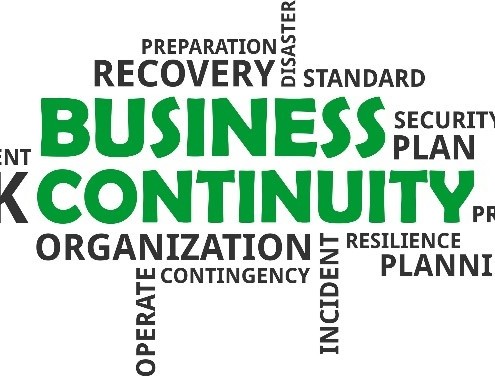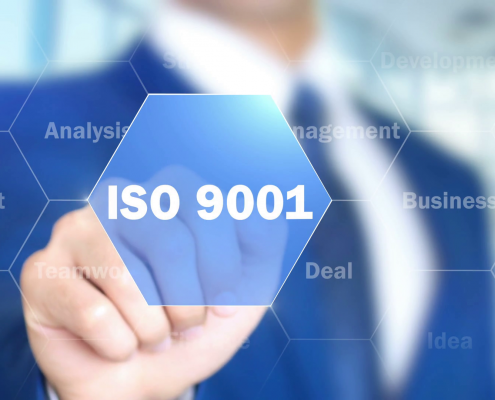Introduction
In today’s competitive global market, businesses are constantly striving for efficiency, transparency, and continuous improvement. One key way organizations ensure they meet these goals is by conducting regular audits of their management systems. This is where becoming a Certified Lead Auditor comes in.
Lead Auditors are professionals who possess the expertise to evaluate and verify that a company’s operations meet global standards. Whether it’s for quality, environmental, or occupational health & safety management, having a PECB Certified Lead Auditor in your organization can bring invaluable benefits. In this article, we explore why pursuing this certification is a smart career and business decision.
Key Benefits of Becoming a Certified Lead Auditor
- Enhance Your Career Prospects
Certification as a Lead Auditor opens doors to a broad range of career opportunities, from audit and compliance roles to senior management positions. It signals to employers that you possess a thorough understanding of industry best practices, risk management, and the ability to assess operational performance. - Gain Global Recognition
PECB is a globally recognized certification body. As a certified Lead Auditor, you can work anywhere in the world, adding an international dimension to your career. Businesses value auditors who can meet international standards, making this certification highly sought after. - Strengthen Your Organizational Value
Lead Auditors are key players in helping organizations improve their processes, reduce waste, mitigate risks, and increase efficiency. With the knowledge gained from the ISO standards and auditing processes, auditors ensure that businesses operate in compliance with legal requirements and industry-specific regulations. - Stay Ahead of Industry Trends
ISO standards are continually evolving to meet the demands of the modern world. As a certified Lead Auditor, you will be at the forefront of these changes, able to guide businesses through new standards and protocols. This positions you as a valuable asset in the workforce. - Improve Your Business’s Reputation
For businesses, having a certified Lead Auditor on staff demonstrates a commitment to excellence. It shows that the company is serious about compliance, quality control, and continuous improvement. This reputation can translate into increased customer trust, loyalty, and ultimately, business growth.
The Role of a Lead Auditor in a Company
A Lead Auditor is responsible for managing audits of management systems. Their role involves:Planning, conducting, and reporting on audits.
- Verifying compliance with ISO standards such as ISO 9001 (Quality Management), ISO 14001 (Environmental Management), and ISO 45001 (Occupational Health & Safety Management).
- Identifying areas for improvement and recommending solutions.
Conclusion
Becoming a certified Lead Auditor not only enhances your career but also plays a pivotal role in improving the efficiency, compliance, and growth of businesses. For professionals in Bahrain, this certification offers immense value, as the region’s industries, such as construction, manufacturing, and healthcare, increasingly demand auditors who can help them meet international standards. Whether you’re looking to level up your career or boost your company’s credibility, becoming a certified Lead Auditor is a valuable investment.

ISO Certification
Let’s face it, most companies start out their ISO journey because they have to. It might be because they want to apply for a big tender and having an ISO 9001 certificate would give them an edge over the competition or is indeed part of the qualification requirements to submit a bid. It is therefore understandable if such companies do not have the initial “buy-in” into the concept of quality management and perceive it as something that they have to do rather than something that they want to do. Eventually though, over time, once they implement the ISO standard in their organization, they start noticing the advantages and start buying into the concept.
However, there are a few companies out there that knowingly or unknowingly opt for a risky shortcut. Under the pressure of the tender submission deadline, they would reach out to more and more ISO consultancy firms until they find their savior. A consultancy firm that would guarantee an ISO certificate within a week for a ridiculously low price and with minimal to no impact on the ongoing operation. That my friends is a trap.
Sure, it is possible for a company to get ISO certified in a week but the probability of finding a company that already has all the ISO requirements in place and would only need a certification audit (Stage 2 audit) are slim at best. If you ever get such an offer, be careful. No matter how tempting it might be, you might be putting your company’s reputation at risk.
It does not take an expert to check if an ISO certificate is real or fake. First of all, any ISO certificate should have two logos printed on it, one for the certification body and the other for the accreditation body (the body that gives the certification body the authority to issue ISO certificates). It should also have two serial numbers printed on it. The first serial number is that of the certificate itself. It is used to check if indeed the certificate was issued by the certification body. All you have to do is visit the certification body’s website and type in the certificate’s serial number in the certificate search page. The other serial number is usually printed below the certification body’s logo. You use that to check if the certification body does indeed have the authority to issue such a certificate by visiting the accreditation body’s website and typing in that number in the certification body search. Finally, you need to check that the accreditation body is indeed part of the International Accreditation Forum (IAF). Again, all you need to do is visit the IAF website (https://iaf.nu/) and search for the accreditation body in the members section. So all you need to check if a certification body is real or fake is ten minutes on a computer and an internet connection.
Aside from putting your company’s reputation on the line, opting for a “dodgy” ISO certificate would deny your company the advantages of the quality management systems provided by ISO standards. Implementing a quality management system in a company may be challenging at first but is actually quite logical and becomes second nature later on. Being required to have an ISO certificate to apply for a tender should be taken as an opportunity to upgrade the level of quality within the company rather than a disturbing challenge. It should signal that your company has grown and is now expected to have a certain level of quality to abide to. In my humble opinion, that is something that should be celebrated.
If you need help in getting an ISO certificate to apply for a tender or otherwise, feel free to contact us at any time https://www.haconsultancies.com/book-a-meeting/

ISO 22301
In times of crisis and unexpected events, we are required to maintain all our processes and procedures in an orderly manner to ensure the continuity of our business.
In this series of posts, we will attempt to explain how ISO helps companies overcome the COVID-19 crisis.
This series would not be complete without explaining more about the most relevant ISO standard to the situation at hand, the ISO 22301.
ISO 22301: Business continuity
ISO 22301 provides us with a continuity plan for unexpected events and ensures that documented procedures are in place that lead organizations to respond, recover, resume, and restore the predefined level of operation after any interruption.
The ISO 22301 standard is a good tool to implement and manage a Continuity Plan, since it is a way of detecting opportunities and improving the operational efficiency of our business nucleus.
With this standard, the internal operating structure of the company can be analyzed, which allows finding various opportunities for improvement, the elimination of which clearly minimizes the risks and costs of our entity.
About H.A. Consultancies
We are a company with more than 20 years of experience in the implementation of ISO Standards and effective management solutions for your organization:
Quality Systems – Information Security – Software Quality – Compliance
Environmental management – Occupational Safety – Food Safety – Operational Excellence
H.A. Consultancies’ team of professionals and experts in ISO certifications will help you achieve your goals by offering you the best consulting service.

ISO
Many companies are concerned about how this ongoing pandemic is affecting the continuity of their activities and threatening their very survival.
Most business owners are concerned with how to keep their companies afloat and are updating their current procedures to accommodate events as unfortunate as the one we are experiencing.
For companies that are already ISO certified, they already have the tools in place to combat external threats. For those who are not, it is not too late.
In this series of posts, we will attempt to explain how ISO helps companies overcome the COVID-19 crisis. In this post, we are going to shed light on the ISO 27001 standard concerned with information security.
ISO 27001: Information Security
With the invasion of cloud technologies, the ISO 27001 witnessed strong growth. With the implications of the Coronavirus Pandemic, this growth is going to become exponential.
Equipment safety, backups, information exchange, network access control, laptops and mobile communications, remote access, key management, data protection and privacy of personal information, business continuity plans – surely if in your company you are working remotely, all these elements have been placed on the table. These are some of the controls established by ISO 27001 and that companies that are already certified have implemented. Therefore, their transition to working remotely or another new way of operating has been easy for them.
In addition, with the amount of malicious information circulating through the different digital media on the Coronavirus, it is imperative to keep the information safeguarded and establish security protocols within the company.
To that end, the ISO 27001 standard allows the implementation of an information security management system as an indispensable tool to protect companies and organizations from threats and risks against information.
This standard allows companies to:
- Identify risks
- Manage risks
- Minimize risks
The ISO 27001 is a standard that keeps the information of the company, customers and suppliers controlled and protected from any intrusion and possible cyber pirate or cyber-attack.
About H.A. Consultancies
We are a company with more than 20 years of experience in the implementation of ISO Standards and effective management solutions for your organization:
Quality Systems – Information Security – Software Quality – Compliance
Environmental management – Occupational Safety – Food Safety – Operational Excellence
H.A. Consultancies’ team of professionals and experts in ISO certifications will help you achieve your goals by offering you the best consulting service.

ISO9001
Not too long ago, many organizations considered ISO and quality management systems as just another bureaucracy, a mandatory requirement to work with global clients, a marketing element, or merely a stamp that looked good on their documents.
However, today, amidst this raging Coronavirus Pandemic, it is these same companies that are dusting off and reviewing their Continuity Plans, Communication Plans, and work procedures or remembering how they evaluated performance indicators to have measurable elements of how this crisis will affect them.
The tools of ISO management systems are at our disposal in times of crisis and it is a good time to put them in play.
In this series of posts, we will attempt to explain how ISO helps companies overcome the COVID-19 crisis. We will start with the most famous ISO standard, the 9001.
ISO 9001: Quality Management
ISO 9001 establishes change management processes that are required in the face of any external event such as COVID-19. With ISO 9001, we will already have tools in place to plan changes, considering their purpose and consequence, the integrity of the quality management system, the availability of resources and the allocation of responsibilities.
Another important contribution that has been revealed these days is the need for a Communication Plan. ISO 9001 certified companies already have a process to determine internal and external communications that include what, when, to whom, how and who communicates and therefore helps them manage how to give information to different stakeholders.
Other important ISO 9001 tools that we can highlight are:
- Internal and external context analysis tools.
- Having identified the stakeholders and their needs and expectations.
- The identification of risks and opportunities of the processes of the organization (now is a good time to review and reassess)
- The identification of customer requirements and risks that may affect the conformity of our products and services.
- Processes already systematized to address risks and opportunities.
- The infrastructure management and information technology and communication necessary for the operation of processes.
- Performance analysis and evaluation tools that will allow us to assess the impact of this crisis on our operations.
- Improvement tools such as non-conformities and corrective actions that establish mechanisms to detect incidents in this new way of operating and be able to correct it as soon as possible.
It is clear that, for the continuity of our business, these elements are key to the change of processes that must be carried out within organizations and provides a way of quality management of each change process, even if it is only temporary.
About H.A. Consultancies
We are a company with more than 20 years of experience in the implementation of ISO Standards and effective management solutions for your organization:
Quality Systems – Information Security – Software Quality – Compliance
Environmental management – Occupational Safety – Food Safety – Operational Excellence
H.A. Consultancies’ team of professionals and experts in ISO certifications will help you achieve your goals by offering you the best consulting service.
